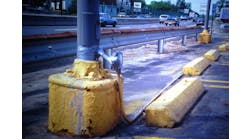Consider this scenario: A fire strikes a facility, seriously injuring some visitors. To make matters worse, the problems just keep unfolding. The damages, thought to be caused by an electrical short, are estimated to run into the hundreds of thousands of dollars. The owner of the facility, operator of the building, electrical consulting design engineer, and electrical contractor are all faced with a lawsuit. And the building owner is suing everyone to recoup his losses. If you were one of the parties involved, you could be sued for a substantial amount — even if you were not at fault.
If you found yourself in this situation, what would you do? Does your insurance company have proper knowledge to act responsibly in defending a technically based lawsuit? Where do you and/or your insurance firm go for help? The answer is the forensic electrical engineer and other forensic experts. If chosen wisely, he/she has the knowledge and experience to uncover and evaluate forensic evidence crucial to your defense.
Remember the saying, “A lawyer who acts as his own attorney has a fool for a client”? Just because you have an electrical engineering (EE) degree and a professional engineer's license doesn't mean you qualify to perform a forensic investigation. It takes a very inquisitive mind to do this special work. After working with numerous forensic engineers on EC&M's forensic column, I have come to realize these people not only have engineering knowledge and a familiarity with pertinent civil codes, they also have keen insight into the causes of failures relating to electrical systems and equipment. To do this type of work, you must also have very thick skin.
Forensic engineers face astute peer review every time they take the stand. In the adversarial environment of a trial, the opposing expert and attorney are dedicated to the ideological destruction of your expert, which can be very unnerving. It could be tempting to misrepresent facts, information, test methods, data, conclusions, and opinions if a forensic investigation reveals that the defendant was actually at fault. Fortunately, this isn't done often.
So should disaster strike, leave it to the forensic experts to determine liability and solve your most complex cases.


